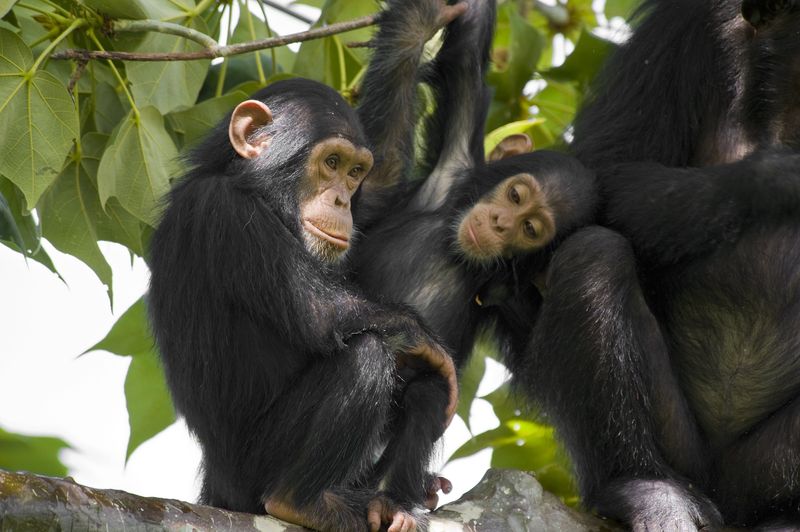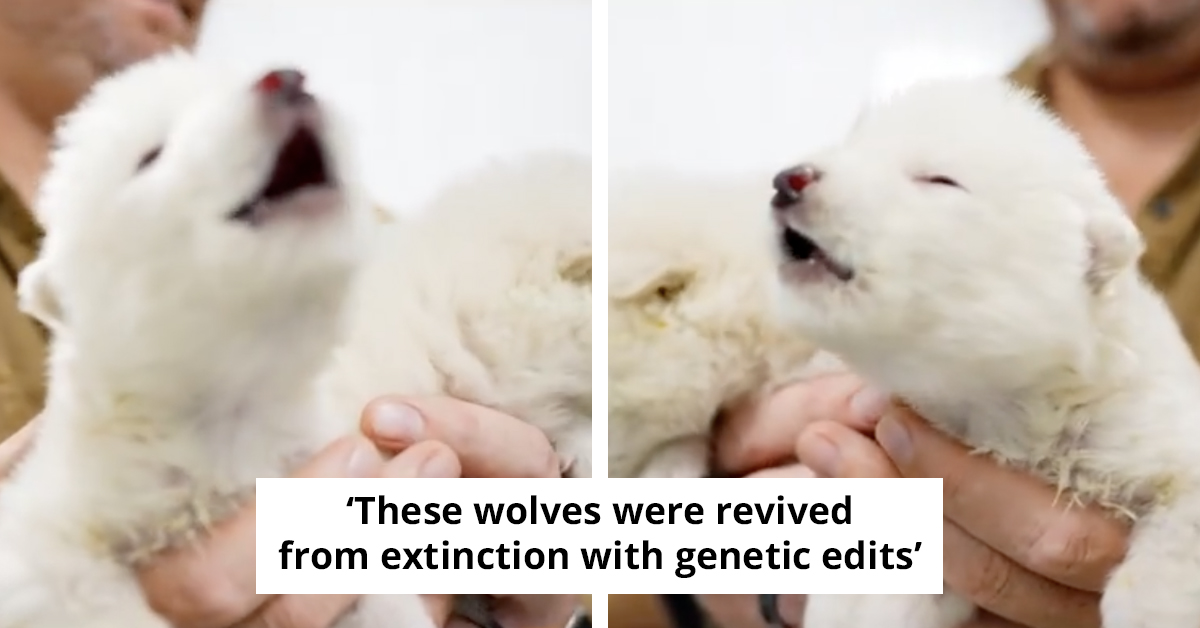New Analysis of Vintage Footage Challenges What We Know About Chimp Speech
Chimpanzees, our closest living relatives along with bonobos, have long fascinated scientists with their intelligence and ability to communicate. For decades, it was believed that while chimps could use gestures and sounds, they lacked the capability to produce words like humans.
Now, new research is challenging that assumption, thanks to old video clips showing chimpanzees apparently saying words such as "mama".
Over the years, scientists have worked to identify what sets humans apart when it comes to speech. However, Axel Ekström, a phonetician and cognitive scientist at KTH Royal Institute of Technology, believes this distinction may have been based on a flawed premise. After studying historical recordings, his team reached a striking conclusion.
In their study, published in Scientific Reports, the researchers wrote: "The hypothesized missing link precluding chimpanzees from voluntary jaw-voice coupling evidently does not exist."
The team’s analysis focused on two unrelated chimpanzees living in different parts of the world. In separate videos, both appeared to say the word "mama", a sound they had reportedly been taught by their English-speaking keepers.
"It has been argued that 'mama' may have been among the first words to appear in human speech," the researchers explained. The word is one of the earliest sounds human babies make, in part because the 'm' sound is easy to produce. It is also a sound found in many different languages.
Chimpanzees Display Human-like Conversational Skill
Chimps share 98.5 percent of their DNA with humans, and if only active genes are considered, the similarity rises to more than 99 percent, according to Whipsnade Zoo.
Alongside the two main clips, the team also studied a third recording from a 1960s TV movie. In it, a chimp can be heard saying the words "papa" and "cup". The researchers concluded that chimpanzees are "vocal production learners", capable of imitating certain sounds they hear.
As they put it, this evidence "corroborate[s] a growing body of evidence" that chimps have more advanced vocal skills than previously thought.
Understanding the Complexity of Chimp Communication
While it's intriguing to see chimpanzees seemingly using human words, it's essential to note that the vocal communication of chimps is vastly different from ours. The complexity of human language goes beyond just producing words; it involves syntax, semantics, and pragmatics. Psycholinguist Charles Hockett defined 16 key features of human language, many of which chimps' communication lacks. However, they do exhibit some of these features like turn-taking and auditory-vocal learning, according to research by Hopkins and Taglialatela (2018).
One more clip studied featured a chimp named Johnny, who lived at the Primate Sanctuary in Florida and was known for calling everyone "Mama".
The findings could have major implications for our understanding of human evolution. Since humans and chimps share a common ancestor from millions of years ago, this research suggests our neurological audiovocal system could be far older than scientists once believed, according to Science Alert.
In the wild, chimpanzees mostly communicate through gestures but also use a range of vocalisations. Past claims of chimps speaking human-like words were often dismissed due to a lack of rigorous analysis. Ekström noted that early research was also limited by the conditions in which the animals were kept.
Many of the chimps studied in earlier decades were separated from their mothers and forced to live in unnatural environments. This not only raised ethical concerns but also likely limited the animals’ ability to demonstrate the full range of their intelligence.
Chimps share 98.5 per cent of their DNA with humans

When studying animals, researchers are careful to avoid humanising them, to prevent bias. However, as Ekström pointed out, underestimating their abilities can be just as misleading.
"The failure to demonstrate this half a century ago was the fault of the researchers, not the animals," he and his team concluded.
Still, it's important not to underestimate the communication capabilities of chimps. They've shown evidence of symbolic communication, a trait once thought unique to humans, as demonstrated in research by Savage-Rumbaugh et al. (1986). This ability to associate signs with objects or events is a significant step towards language development. However, the presence of isolated language-like features doesn't equate to a fully developed language system like ours.
The Impact of Environment on Communication Skills
Interestingly, the environment plays a critical role in the development of communication skills in chimps. Captive chimps are known to develop more advanced communication skills compared to their wild counterparts, as per a study by Pollick and de Waal (2007). This is likely due to increased exposure to human communication and the necessity to interact with humans for food and care. It's a classic example of the nature vs nurture debate in psychology.
Analysis & Alternative Approaches
In conclusion, while chimps might surprise us with their ability to mimic human words, it doesn't equate to them possessing human-like language. We should appreciate their communication skills for what they are – an impressive adaptation to their environment and social needs – rather than comparing them to our own. After all, as research by Liebal and Kaminski (2016) suggests, non-human primate communication is a field that deserves understanding and respect in its own right.




